I have a .csv file filled with observations from sensors in the field. The sensors write data as millimeters and I need it as meters to import into another application. My idea was to use Python and possibly pandas to: 1. Read in the .csv as dataframe 2. Find the headers of the data I need to modify (divide each actual value by 1000) 3. Divide each value in the chosen column by 1000 to convert it to meters 4. Write the resulting updated file to disk
Objective: I need to modify all the values except those with a header that contains "rad" in it.
This is what the data looks like:

Here is what I have done so far:
Read data into a dataframe:
import pandas as pd import numpy as np delta_df = pd.read_csv('SAAF_121581_67_500.dat',index_col=False)Filter out all the data that I don't want to touch:
delta_df.filter(like='rad', axis=1)
Here is where I got stuck as I couldn't filter the dataframe to
not like = 'rad'
How can I do this?